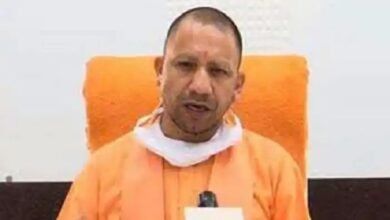[ad_1]

The report also mentioned an episode in 2016 when Indraprastha Apollo Hospital became entangled in a kidney scandal, leading to multiple arrests during that period. (Shutterstock)
In its official statement, Indraprastha Medical Corporation Ltd said the allegations made in international media are “absolutely false, ill-informed, and misleading”
The National Organ and Tissue Transplantation Organisation (NOTTO) under the Health Ministry has launched an investigation into accusations of a cash-for-kidney scandal involving Indraprastha Apollo Hospital, News18 has learnt.
The investigation was prompted by allegations made in The Telegraph, a UK-based newspaper, claiming that this private hospital group is engaged in an illicit operation enticing individuals from Myanmar to sell their organs for financial gain.
“We have been informed by NOTTO that an investigation has already been launched into the matter. As it involves international linkages too, we need to give some time to the department to come up with concrete findings,” a senior official at the health ministry told News18.
The report published on December 3 alleged that “young villagers from Myanmar are flown to Apollo’s esteemed Delhi hospital, receiving compensation for donating their kidneys to affluent Burmese recipients”.
The allegations have been denied by Indraprastha Medical Corporation Ltd (IMCL) in its statement on the report, calling them “absolutely false, ill-informed, and misleading”.
Apollo Hospital is India’s largest hospital chain which claims to perform over 1,200 transplants annually, attracting affluent patients globally.
“All the facts were shared in detail with the journalist concerned. To be clear, IMCL complies with every legal and ethical requirement for the transplant procedures including all guidelines laid down by the government as well as our own extensive internal processes that exceed compliance requirements,” it said.
The report also mentioned an episode in 2016 when Indraprastha Apollo Hospital became entangled in a kidney scandal, leading to multiple arrests during that period.
Summary of the published report
The report emphasises the law where “paying for organs is illegal in India, as it is across most of the world…”
However, a Telegraph investigation has revealed that desperate young villagers from Myanmar are being flown to Apollo’s prestigious Delhi hospital and paid to donate their kidneys to rich Burmese patients.
“It’s big business,” the report said, quoting one of the racket’s ‘agents’. “The scam involves the elaborate forging of identity documents and staging of ‘family’ photographs to present donors as the relatives of would-be patients. Under Indian and Burmese laws, a patient cannot receive an organ donation from a stranger in normal circumstances.”
It said that globally, 1 in 10 transplanted organs have been trafficked.
The report shows NHS data that at least 158 NHS British patients have travelled overseas for an organ transplant since 2010. “According to the figures, the majority of these operations (25 per cent) were conducted in India, which has long had a problem with organ trafficking.”
“Experts say the illegal trade is channelled through the nation’s booming private healthcare industry, in which Apollo Hospitals is a major player.”
Apollo’s explanation
According to the official statement, IMCL requires every donor to provide Form 21 notarised by the appropriate ministry in their country.
“This form is a certification from the foreign government that the donor and recipient are indeed related. The government-appointed transplant authorisation committee at IMCL reviews documents for each case including this certification and interviews the donor and the recipient,” it said.
“It further re-validates the documents with the concerned embassy of the country. The patients and donors undergo several medical tests, including genetic testing.”
“These and many more steps far exceed any compliance requirements for a transplant procedure and ensure that donor and recipient are indeed related as per applicable laws. IMCL remains committed to the highest standards of ethics and to delivering on our mission to bring the best healthcare to all.”




